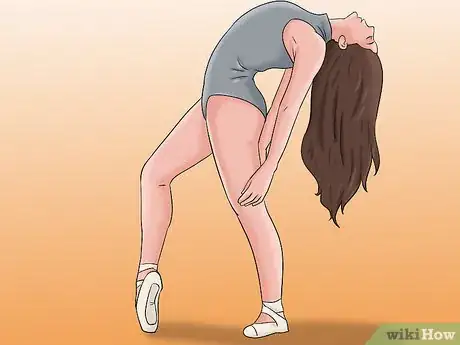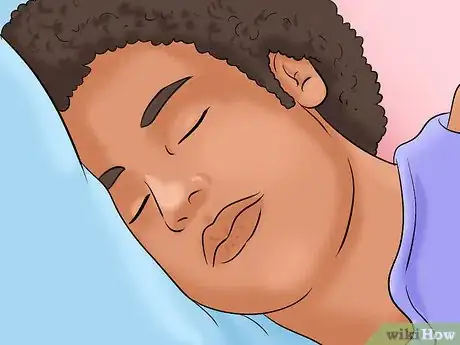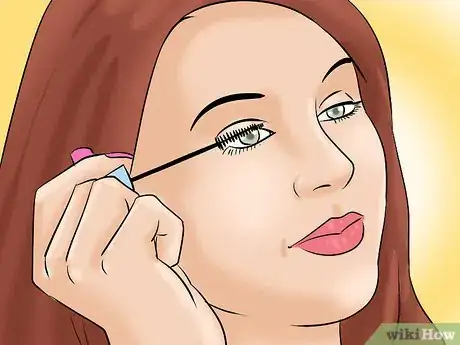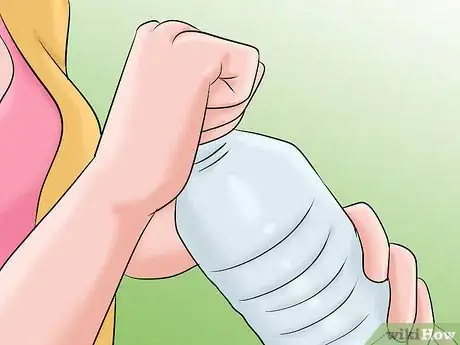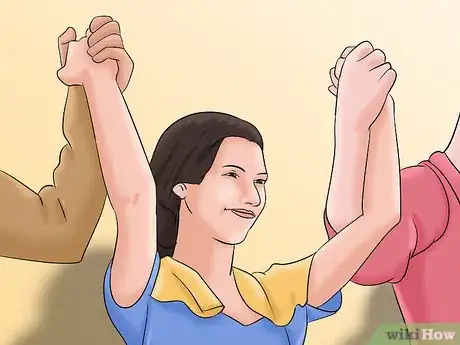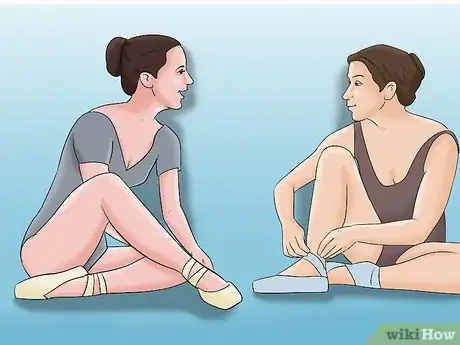This article was co-authored by Ben Whitehair. Ben Whitehair is a Social Media Expert and the Chief Operating Officer (COO) of TSMA Consulting. With over a decade of experience in the social media space, he specializes in leveraging social media for business and building relationships. He also focuses on social media’s impact on the entertainment industry. Ben graduated summa cum laude from The University of Colorado at Boulder with BAs in Theatre and Political Science as well as a Leadership Certificate. In addition to his work as CIO, Ben is a certified business and mindset coach and National Board Member of SAG-AFTRA. He is also a successful entrepreneur as the Co-Founder of Working.Actor, the premier business academy and coaching community for actors.
wikiHow marks an article as reader-approved once it receives enough positive feedback. In this case, 100% of readers who voted found the article helpful, earning it our reader-approved status.
This article has been viewed 68,514 times.
Whether it is your first performance or you are a more seasoned performer, preparing for a performance is an important process. Preparation involves a combination of practicing leading up to the performance, physical preparation the night/day before, and reading yourself to go on stage. Read on to discover more details on what to do and not to do to prepare!
Steps
Keep a few essentials backstage.
-
1For example, if allowed, keep a water bottle backstage. Don't drink a lot because this can affect your dancing, but just a few sips so that you can sing and speak easily.[3]
Know how to act backstage.
-
1Each theatre group is different in the way they set up backstage.
- If there are changing rooms in the back, take advantage of them. If not, remember that the entire cast are your friends and that it shouldn't be awkward changing in front of them. If you have a complicated costume -- for example, a dress with hard-to-reach buttons on the back or a zipper that always seems to disappear -- ask a friend to help you out.
- When backstage, remember to be quiet. When the audience hears noise backstage, it ruins all of the hard work you put in to create an exceptional show, and is embarrassingly unprofessional.
-
2Gather the cast altogether before the beginning of the performance. Right before you go on stage, gather up all of the cast members and form a circle. Face outward, join hands and picture yourself on the stage. One person should start by squeezing the hand of the person next to them, and the next person will pass it on, and it will keep on going until you've gone around the circle. After this has been done, let go of hands and get ready for the first scene.[4]
Expert Q&A
-
QuestionIf you're nervous before a performance, what are some easy things can you can do to calm down?
 Ben WhitehairBen Whitehair is a Social Media Expert and the Chief Operating Officer (COO) of TSMA Consulting. With over a decade of experience in the social media space, he specializes in leveraging social media for business and building relationships. He also focuses on social media’s impact on the entertainment industry. Ben graduated summa cum laude from The University of Colorado at Boulder with BAs in Theatre and Political Science as well as a Leadership Certificate. In addition to his work as CIO, Ben is a certified business and mindset coach and National Board Member of SAG-AFTRA. He is also a successful entrepreneur as the Co-Founder of Working.Actor, the premier business academy and coaching community for actors.
Ben WhitehairBen Whitehair is a Social Media Expert and the Chief Operating Officer (COO) of TSMA Consulting. With over a decade of experience in the social media space, he specializes in leveraging social media for business and building relationships. He also focuses on social media’s impact on the entertainment industry. Ben graduated summa cum laude from The University of Colorado at Boulder with BAs in Theatre and Political Science as well as a Leadership Certificate. In addition to his work as CIO, Ben is a certified business and mindset coach and National Board Member of SAG-AFTRA. He is also a successful entrepreneur as the Co-Founder of Working.Actor, the premier business academy and coaching community for actors.
Acting Coach I'm a big fan of mantras for meditation. For example, a mantra of the phrase, "I am enough." I also think it's okay to feel nervous. Lots of people feel nervous. Focus on telling the story and focus on the character. Try to channel that energy somewhere, as opposed to trying to make it go away. Finally, the parts of our brain that fire when people say they're nervous, are the same parts of the brain that fire when we say we're excited, so part of it is reframing. Instead of telling yourself, "Oh, I'm feeling nervous," say, "Oh, I'm feeling excited." That can often help change the way that you approach something.
I'm a big fan of mantras for meditation. For example, a mantra of the phrase, "I am enough." I also think it's okay to feel nervous. Lots of people feel nervous. Focus on telling the story and focus on the character. Try to channel that energy somewhere, as opposed to trying to make it go away. Finally, the parts of our brain that fire when people say they're nervous, are the same parts of the brain that fire when we say we're excited, so part of it is reframing. Instead of telling yourself, "Oh, I'm feeling nervous," say, "Oh, I'm feeling excited." That can often help change the way that you approach something. -
QuestionHow can I be mentally prepared?
 Community AnswerGive yourself as well as your cast/crew compliments to try to uplift and move them. Make them feel as though they will do a great job regardless. Remember, the point of theater is to enjoy the performance and to have fun being on stage, so nervousness is a given, but try to not give into it too much.
Community AnswerGive yourself as well as your cast/crew compliments to try to uplift and move them. Make them feel as though they will do a great job regardless. Remember, the point of theater is to enjoy the performance and to have fun being on stage, so nervousness is a given, but try to not give into it too much. -
QuestionWill I be able to act if I have braces?
 Community AnswerYes. Braces should not affect your ability to act at all. It's possible that some directors might not choose you if you don't have the right look for the part, but it shouldn't make a huge difference overall. Besides, you won't be wearing braces forever.
Community AnswerYes. Braces should not affect your ability to act at all. It's possible that some directors might not choose you if you don't have the right look for the part, but it shouldn't make a huge difference overall. Besides, you won't be wearing braces forever.
Warnings
- Never do makeup in costume, as it can get on the costume. The order goes microphone, makeup, costume.⧼thumbs_response⧽
- Try to keep a healthy relationship between yourself and the other cast members. If you are having arguments and fights, chances are it's going to show onstage. Remember that good relationships are essential because theatre is teamwork.⧼thumbs_response⧽
References
- ↑ https://www.dancemagazine.com/your-ideal-pre-show-prep-2509435448.html
- ↑ https://www.dancemagazine.com/your-ideal-pre-show-prep-2509435448.html
- ↑ https://www.dancemagazine.com/your-ideal-pre-show-prep-2509435448.html
- ↑ https://www.danceinforma.com/2012/12/04/pre-performance-rituals/
- ↑ https://www.uncsa.edu/news/20180920-dance-performance-tips.aspx
